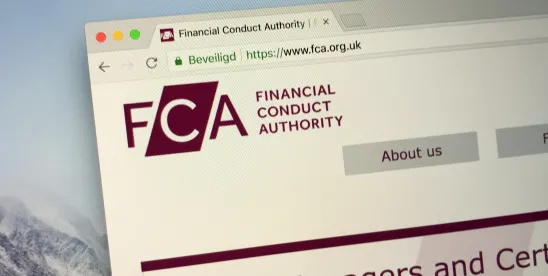The FCA has been focused on appointed representatives (“ARs”) for many years now, dating back to its 2016 and 2019 thematic reviews. It grudgingly accepts that the AR regime has some cost efficiency, competition, and market access benefits. But it sees ARs as high risk, because it perceives that often principal firms undertake inadequate due diligence before appointing ARs and are lax with their ongoing oversight. It rightly observes that the AR regime has evolved from its original use by insurers and other product providers to distribute their products via a network of ARs, to encompass a wide range of models such as regulatory hosting and networks, and products and services ranging from retail and insurance to asset and investment management.
Some high-profile AR failures have not helped. In its 2021 consultation paper the FCA notes that principals of AR firms generate 50-400% more complaints and supervisory cases than firms without ARs, and 61% by value of FSCS claims. We have advised principal firms on a number of such cases in recent years.
Setting firms’ homework
Those misgivings led to new FCA rules introduced from 8 December 2022. The gist of those rules was to clarify and strengthen the responsibilities and expectations on principal firms, and to require them to provide more information to the FCA on their ARs. The requirements included:
- A one-off information gathering exercise on existing ARs, the rationale of the AR relationship, details of the AR’s business, and the financial and other arrangements with the AR.
- Providing the same information to the FCA 30 days before onboarding any new AR, and updating information on existing ARs as it changes.
- Annual reporting of AR complaints and the AR’s revenues (both regulated and unregulated).
- Notifying the FCA when a firm intends to provide regulatory hosting services.
- Enhanced oversight of ARs, ensuring the principal firm’s systems and controls and resources are sufficient. The FCA says a principal’s oversight should be “of a comparable standard as if they were an individual directly employed by the principal”.
- Annual review of ARs including reviewing the fitness and propriety of the AR’s senior managers, the AR’s financial position, and the adequacy of controls and resources in place to oversee the AR.
- Ad hoc review where there are changes to the AR’s business model and/or senior management team, or a significant increase in complaints.
- Annual self-assessment of how the principal is meeting its responsibilities in relation to all its ARs.
Class test
Now the FCA has “tested” 251 firms (c.10% of all principal firms) on their approach to these new obligations, by way of a telephone survey. It also selected 23 firms for a more in-depth assessment. The samples were randomly selected to include firms with many or few ARs, and from a range of different sectors. The FCA published the report card from that exercise last week.
The cohort was damned with the faint praise that they had “made some effort” to comply with the new rules. The class swots were “keeping clear documentation to show compliance with the FCA’s enhanced rules and using a broad range of checks and information to oversee and monitor ARs’ activities”. However, the dunces were chastised for a “tick box approach” to compliance, relying on basic information like website checks or self-declarations from ARs.
One in five firms had not done their self-assessment or annual review homework at all. Of those that had, half were “good quality” (in line with the requirements of SUP 12.6A). Half the class were not regularly reviewing their AR agreements. A third of firms were not using data or management information to monitor whether ARs were sticking within the scope of their AR agreements. And most firms had not changed their AR onboarding or termination procedures since the rules were introduced.
Studies suggest that 65% of people think they are smarter than average. Similarly, 96% of telephone survey participants said they were “very confident” they were effectively implementing the new rules and guidance. The FCA dryly discerned “some over-confidence” in firms’ high self-esteem.
Gold stars were awarded for various examples of good practice in relation to self-assessments, annual reviews, ongoing monitoring and oversight, and approach to onboarding and “offboarding” ARs. Principal firms wishing to avoid detention or a visit to the headmaster’s office should read those, and the countervailing examples of “areas for improvement” carefully.
Next term
Our own recent experiences suggest many principal firms would be wise to prioritize prophylactic improvements to their AR processes, procedures, systems and controls. Oversight of ARs is identified as a focus area in the FCA’s Strategy 2022 to 2025 and so we will certainly continue to see heightened FCA supervisory activity around ARs (including s.165 requests, supervisory visits, and skilled person reviews), and in some cases enforcement action, for the foreseeable future.



 />i
/>i
